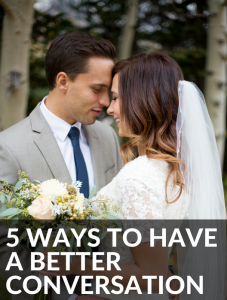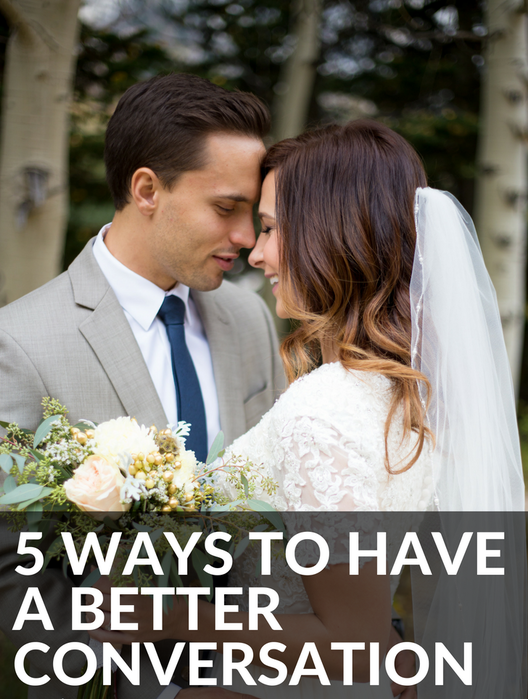
5 WAYS TO HAVE A BETTER CONVERSATION
Every day is full of conversations and communication, or at least it should be. Because of the technology centered nature of the world, face-to-face conversation has become secondary to emails, texts, Snapchats, and Facebook messenger. While this is a benefit in many ways, it can also become a hindrance in establishing close and meaningful interactions.
As conversation and mutual self-disclosure has been found repeatedly to strengthen familial, friendly, and romantic relationships, it makes sense to want to build upon that skill to ensure that every conversation we have is a good one.
5 Ways to Have a Better Conversation
1. Don’t multitask.
As a result of using technology to enhance every day, all of us have become both masters and failures at multitasking. We find ourselves constantly splitting our attention between different activities simultaneously, yet research indicates we are not nearly as effective at doing so as we may think.
If you want to be engaged in a conversation BE ENGAGED. Ignore texts, tasks, and technology in general in order to be present. Partners who experience disengaged (or multitasking) conversations have more conflict and experience more unhappiness in both their lives and their relationships. Simply put: ignoring all else and focusing entirely on the conversation at hand will improve both the conversation and your relationships.
2. Don’t pontificate.
Enter every conversation with the thought that you have something you can learn from it. Remembering that everybody is an expert in something opens up your mind towards listening to understand rather than listening to reply. Listening to understand opens up your horizon to new knowledge, and makes you more personable towards others, leading to further closeness in your relationships. Also, having someone be more interested in you than being interesting indicates that you matter and increases feelings of affection for them.
This can be particularly important in romantic relationships. At the beginning of a relationship it is easy to show interest in this new and appealing person. However, after years of togetherness it’s easy to develop the attitude that you’ve learned all there is to know about your partner. This pushes partners away and encourages them to disengage. Hearing, “You told me this already,” is shaming and uncomfortable. If you think you know a story that’s being told try saying, “Oh, I remember this!” And engage one more time – remembering they have something to teach you.
3. Ask open ended questions.
Nothing stops a conversation like a string of yes/no questions. Even being asked a question that intends well, such as, “Were you angry?” limits the response that can be given. Instead, asking, “How did that make you feel?” provides an opening for a wide range of answers. Give your partner an opportunity to express themselves and to be heard.
4. If you don’t know, say you don’t know.
Remember that tip about assuming that everyone is an expert in something? It is extra important here. You benefit no one when someone asks if you’re familiar with something and you say yes. My husband’s one true passion in life is politics. Although I know a fair amount about politics and hate admitting I don’t know about something, asking him for information or an explanation has improved our conversations around that topic so much. He gets excited to explain how wonderful a caucus is or how horrible he thinks delegates are, and I feel more affection seeing a happy, excited, and passionate husband. I also don’t have the fear of trying to navigate a conversation on a topic that I know nothing about.
5. Don’t equate their experience with yours.
Empathy is great, as is expressing understanding for pain. However, assuming you know everything about someone’s experience limits your ability to learn and hear from them, and their ability to express themselves. Even if you and your partner went through a similar situation, your experiences are different because you are two unique people. Never underestimate the individuality of the person you are speaking to.




